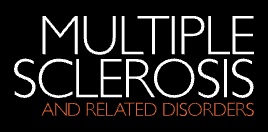Using the Integrated Cognitive Assessment Platform (CognICA) to monitor changes in cognitive performance in patients with Alzheimer’s Disease under disease-modifying therapy.

Alzheimer’s disease is a progressive and degenerative disorder that causes cognitive decline, and until recently had no cure. However, recently FDA-approved disease-modifying therapies (DMT) such as Aduhelm and Leqembi, have been developed to slow down the progression of this devastating condition. Both of these DMTs work by targeting a protein called beta-amyloid, which accumulates in the brains of people with Alzheimer’s. By targeting this protein, the DMTs attempt to stop the progression of Alzheimer’s disease, providing hope for patients and their families.
However, to accurately measure the impact of these therapies on patients’ brain health and cognitive function, beyond the removal of beta-amyloid, it is important to track cognitive performance in these patients over time. This can be a challenge due to the complexity of the disease, as well as the difficulty in accurately measuring and monitoring changes in cognitive performance.
Here, we present a real-world study that demonstrates the effectiveness of Cognetivity’s Integrated Cognitive Assessment (CognICA) in tracking cognitive function during treatment of Alzheimer’s disease patients using Aducanumab. The study utilises CognICA, an AI-based digital biomarker of cognition, to monitor patients’ cognitive performance every month, providing insight on the impact of Aducanumab in treating the disorder.
CognICA is a 5 minute computerised cognitive test that employs artificial intelligence, and is used as an inexpensive cognitive screening and monitoring tool. CognICA is independent of language and culture, free from practice effect, and has been utilised internationally in diverse populations [1-4]. CognICA is further shown to be cost saving to the health and social care payers, when used to screen primary care patients for dementia and perform initial triage in memory clinics [5].
